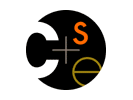|
|
|

|
|
[
prereqs |
topics |
assignments |
exams |
grades|
policies
]
Requirements
Prerequisites
- CSE351:
rudimentary knowledge of C programming; the ability to write,
run, and debug programs; familiarity with Linux and the use of
Linux compilation, editing, and debugging tools; a solid mental
model of the relationship between high-level code (C) and
assembly-level compiled code; simple data structures such as
linked lists, trees, hash tables, and queues.
Corequisites
- CSE332:
data abstractions, including dictionaries, balanced trees,
queues, graphs, sorting algorithms, and simple concurrency,
parallelism, and synchronization.
Suggested
Approximate topic list
- C programming (<2 weeks)
- review of basic C programming and memory model from HW/SW interface course
- pointers, lvalues & rvalues, structs, casts
- arrays and strings
- 2-D arrays with and without pointers
- dynamic storage allocation (malloc/free)
- C preprocessor, multifile programs
- core C libraries (I/O, strings, etc.)
- idioms for error handling without exceptions
- Essential tools for C/C++ (1 week)
- compilers, debuggers, make
- advance tools (memory leak detection, performance profiling, code coverage)
- version control, etc.
- Memory management and system interface (1 week)
- idioms for manual memory management; avoiding dangling
pointers and memory leaks
- memory management implementation
- linking and libraries: how a program is assembled
- relation between libraries and underlying OS services
- C++ programming (3-4 weeks)
- basic C++: “a better C”, C with classes
- class definitions, constructors, copy constructors, destructors, const, other details
- dynamic memory allocation (new/delete), classes with dynamic data
- classes and inheritance in C++; overloading, overriding
- using C++ templates and STL
- Best practices (1 week)
- class design and patterns in C++
- systematic program development and debugging
- profiling and optimization
- Concurrency in C/C++ (1 week)
- concurrent programming beyond HW/SW interface course
- asychronous I/O, networking, and user interfaces
- if time, a brief reintroduction to threads
- Security issues in C/C++ (< 1 week)
- discussed throughout where appropriate, e.g., safe vs
unsafe library functions
Assignments
This course is designed to give you substantial experience with
programming. There will be approximately one programming
assignment due per week; the assignments are designed to build on
top of each other, so it is in your interest to make sure that
earlier assignments are rock-solid.
All of our assignments assume you will be programming within a CSE
Linux environment. There are three ways to do this:
Exams
We will have one midterm exam and a final exam. The dates are
listed on the course schedule, though the midterm date is subject to
change (with reasonable advance notice given).
Grades
Grades will be assigned approximately as follows:
- assignments: 60%
- midterm: 15%
- final: 25%
Policies
(Many of these policies are taken verbatim from other CSE courses.)
Late Policy: There is a 10% penalty for each late day, or
portion thereof, up to a maximum of two days late. You will receive
a zero for the assignment if it is turned in more than 48 hours
late. Also, you get two free late days - two days of lateness
with no penalty - to use at your discretion.
Reasonableness: No set of rules can apply perfectly in every
setting. Reasonable exceptions can be made.
Cheating vs. Collaboration: Collaboration is a very good
thing. On the other hand, cheating is considered a very serious
offense, and is vigorously prosecuted. Vigorous prosecution requires
that you be advised of the cheating policy of the course before the
offending act.
For this course, the policy is simple: don't cheat. You know it
when you're doing it. We'll recognize it when you do it. As an easy
example, sharing assignment solution code with each other is
cheating. As another easy example, relying heavily on some resource
(e.g., some example code you found on the Web) without attributing
it in your turnin is cheating.
That said, collaborating is, for many people, an effective way to
learn. Learning isn't cheating. Helping each other write programs
that are not assignments isn't cheating. Misrepresenting that
you've learned something, or done the work that implies you've
learned something, almost certainly is.
|
|


 CSE Home
CSE Home  About Us
About Us Search
Search Contact Info
Contact Info